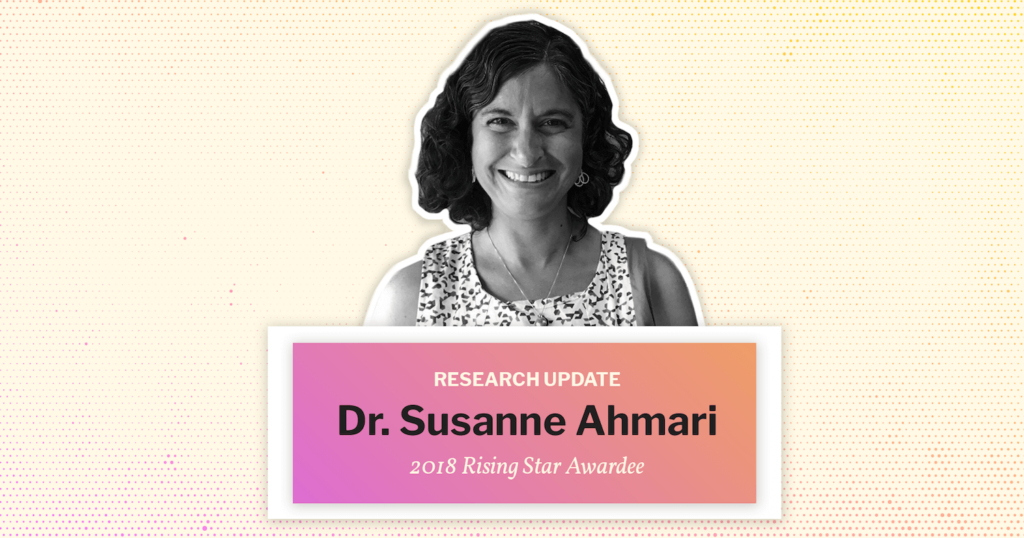Dr. Susanne Ahmari – Effective and Safer Treatments for Obsessive Compulsive Disorder

Rising Star Award Research Update – Susanne Ahmari, MD, PhD
Associate Professor of Psychiatry at the University of Pittsburgh
2018 One Mind / Janssen Rising Star Translational Research Awardee
Obsessive-Compulsive Disorder is a common, long-lasting anxiety disorder where the person has recurrent, persistent, intrusive thoughts or impulses (obsessions) and repetitive behaviors (compulsions) that he or she feels the urge to repeat over and over as a means to reduce or prevent the severe distress and dread. For the approximate 2.3% of the global population (1 in 40) who have met the criteria for an OCD diagnosis at some point in their lives, the disorder can have a highly impactful effect on their life, taking up hours of the person’s day, negatively interfering with work, family and social relationships.
In the present, effective treatment for OCD is hindered by the fact that there is not a diagnostic available, such as a blood test, to confirm OCD and there is no current knowledge of what molecules in the brain might be abnormal for someone with OCD as compared to those without. With funding support from the 2018 One Mind / Janssen Rising Star Translational Research Award Susanne Ahmari, MD, PhD, Associate Professor of Psychiatry at the University of Pittsburgh aims to fill this critical gap in knowledge.
Dr. Ahmari and her team have observed that genes that regulate neuronal communication in the orbitofrontal cortex (OFC) are downregulated in people with OCD, but the reason this happens is unknown. They hypothesize that over-activity from the thalamus, a major relay station for circuits in the brain, is the primary source of the problem and that the changes in the OFC are compensating for this barrage of activity. Through their One Mind funded project, they are testing this idea in human postmortem OCD brain samples and in animal models.
In their first year of One Mind funded research, Dr. Ahmari has made progress in both arms of this project. First, they have begun the painstaking processes of dissecting out specific layers of the OFC from human post-mortem brain samples. When this is complete, they will sequence all of the RNA in these specific OFC layers to determine if changes in gene expression are more heavily localized to the layers that receive input from the thalamus. If so, such a result would support their hypothesis.
Second, Dr. Ahmari’s team optimized their surgical procedures to ensure that they could specifically hyperstimulate projections going from the thalamus to the OFC in mice. Preliminary data, obtained from the Inscopix nVoke microscope, which they received as a One Mind / Inscopix Technology Supplement Grant supports their hypothesis that OFC-thalamus hyperstimulation is associated with an increase in OCD-relevant behaviors. In the coming year Dr. Ahmari and her team will be replicating this experiment, as well as building on it to simultaneously stimulate thalamus-OFC projections and visualize downstream activation in the OFC.
A key step for the creation of effective treatments for OCD is to confirm what regions in the brain should be targeted. Through her One Mind funded research, Dr. Ahmari and her team continue to progress in their aim to identify such targets. One Mind is impressed with the work Dr. Ahmari and her team has done to date and we remain hopeful in the research they will do in the next two years that is supported by the One Mind Rising Star Award she won. A special thank you goes to Janssen Research & Development for making her award possible. You can watch Dr. Ahmari’s research summary presentation filmed at our 2018 Music Festival for Brain Health here.
